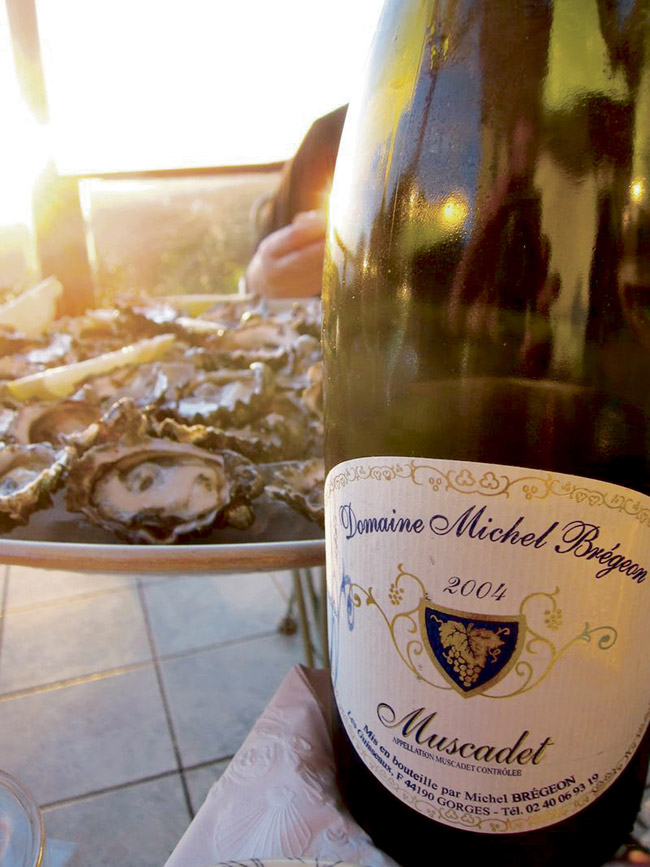Andre Bregeon Redefines Muscadet

2004 Domaine Michel Bregeon Muscadet is amazingly fresh with lots of citrus, hints of nuts and more than a smidgin of pineapple
Forget everything you know about Muscadet.
Not that Muscadet is actually a household name, but that is what I had to tell myself after having dinner with and visiting the domaine of Andre Bregeon in the Nantais region of France.
Muscadet is an appellation at the western end of the Loire River Valley in France, based on the grape Melon de Bourgogne. There are several appellations that begin with the name Muscadet. There is Muscadet AOC, which includes grapes grown throughout the region. Then there are three smaller subregions that include Sevre et Maine, which is named after two tributaries of the Loire, Cotes Des Grands Lieu and Coteaux de la Loire. The smallest appellations that cover only single villages of the area and are called Crus, and regarded more highly are Clisson and Gorges, which are based on schist and granite soils, and Pallet, which has a unique rock called Gabbro – all of which are of volcanic origin.
Everything you read about Muscadet almost everywhere leads you to believe that the wine should be light, citrusy, may have some residual bubbles from being bottled so quickly after fermentation, and being quite simple. Muscadet producers keep their wines on the lees for a longer period of time, and use battonage (hand-stirring) in order give their wines more flavor, depth and complexity. When they do this for an extended period, at least until the first of March after the harvest, they also can add the designation of “Sur Lie” on the label.
The point here is that the reputation of Muscadet is that it is looked down upon for being innocuous and vapid unless it gets pumped up through wine-making technique.
All of this came to a screeching halt for me when I met Andre Bregeon and his wines. Andre has been making Muscadet for more than 40 years, and has made it his mission to dispel the reputation of simplicity and, frankly, lowliness. He even helped to outline the appellation rules for the three Muscadet Crus.
But his wines speak the true story. Of the different bottlings, the flagship wine is called the Reserve. This cuvee is extra-aged in glass-tiled cement tanks from periods of between 36 and 89 months, depending on the quantity and quality of the grapes of the harvests, and it’s made only in great vintages. The results are nothing short of amazing.
In the winery, we tasted the 2004, which was 89 months on the lees. It is amazingly fresh with lots of citrus, hints of nuts and more than a smidgin of pineapple. It has the weight of Chardonnay from Meursault, with a refrain of hard stone on the finish. The next vintage is 2009, but will not be bottled until 2014. This was even more fresh with slightly less weight but still scintillatingly intense – a wine that will be long aging.
At dinner we enjoyed the 1999 vintage, which was golden in hue and totally reminded me of aged Grand Cru Burgundy replete with orchard fruit and nuttiness. I enjoyed the 2002 even more. This wine, at 10 years young, is the single greatest Muscadet to pass my lips, a wine that I would easily place alongside Grand Crus from Chablis and even the Cote d’Or.
Andre is now retiring and passing on the mission and the baton of the domaine to Frederick Fontaine. In my mind, the mission is already accomplished. Make it your mission to try one of these limited treasures.
Roberto Viernes is a master sommelier. Email rviernes@southernwine.co m or follow him on Twitter @Pinotpusher.





